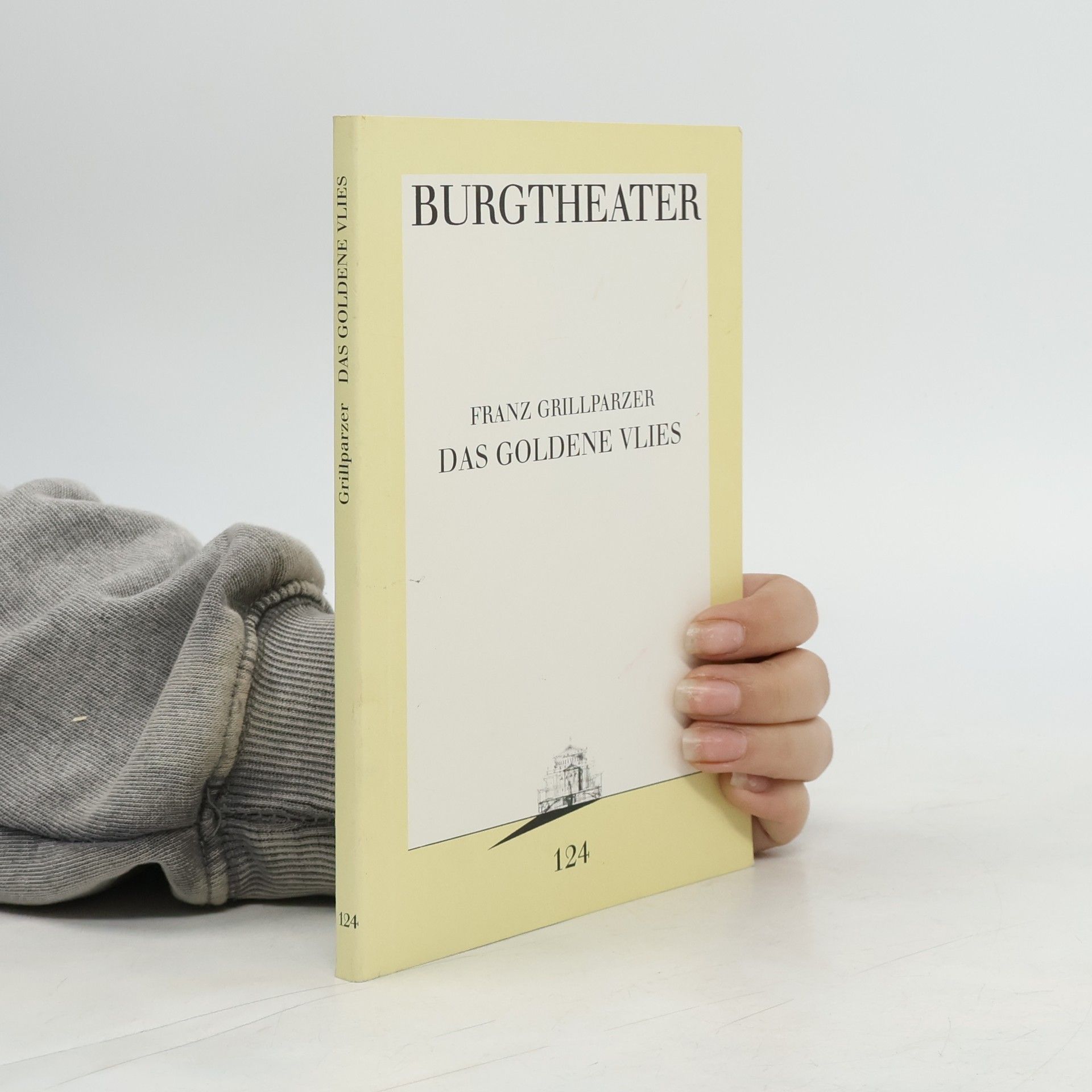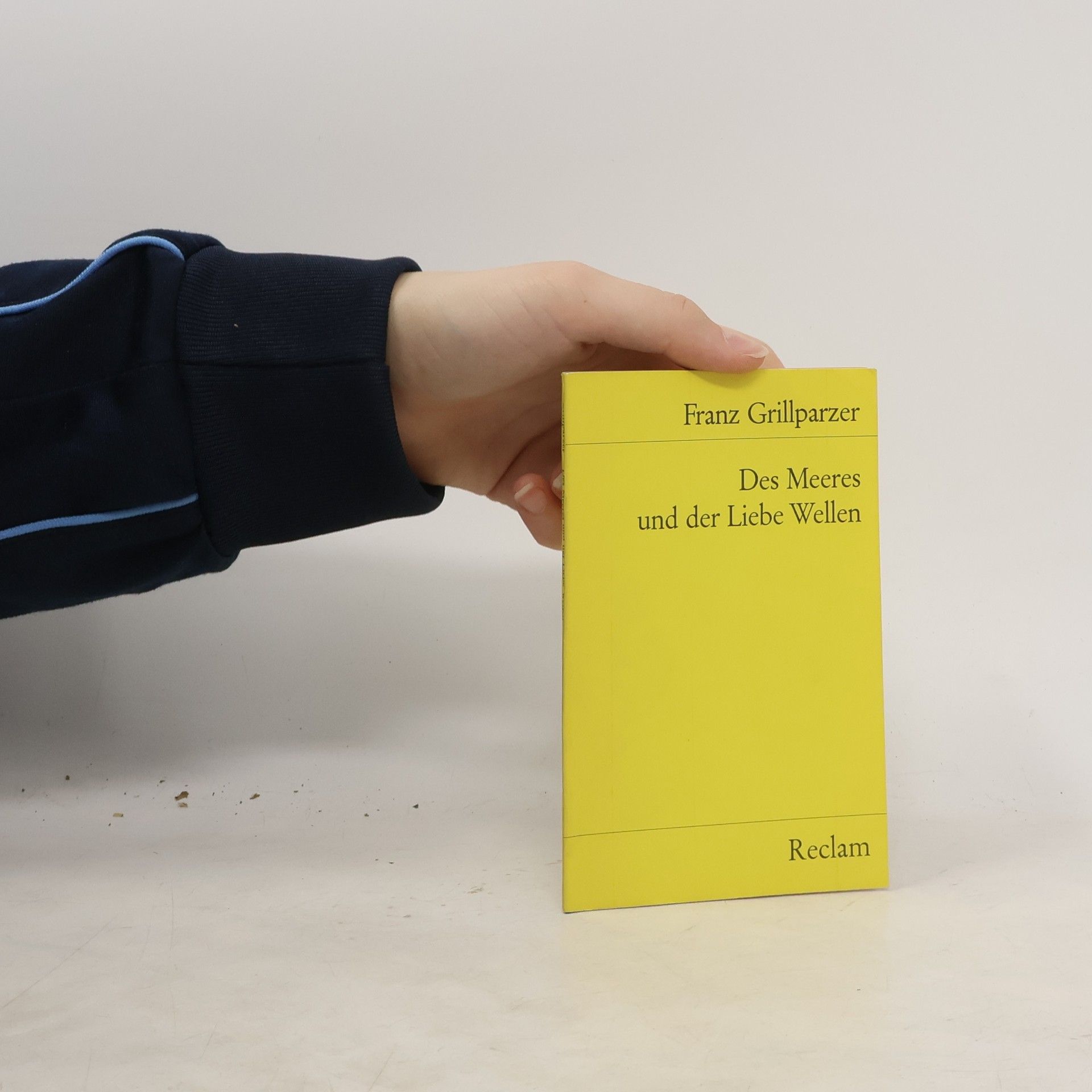Franz Grillparzer Libros
Franz Grillparzer fue un dramaturgo austriaco cuyas obras se consideran fundamentales para la identidad austriaca, especialmente después de 1945. Sus dramas se caracterizan por una profunda perspicacia psicológica y una exploración de la naturaleza humana. Grillparzer combinó magistralmente la forma clásica con la sensibilidad romántica, y su influencia en la literatura austriaca es inmensa. Su escritura ofrece perspectivas atemporales sobre la moral, la política y el destino.

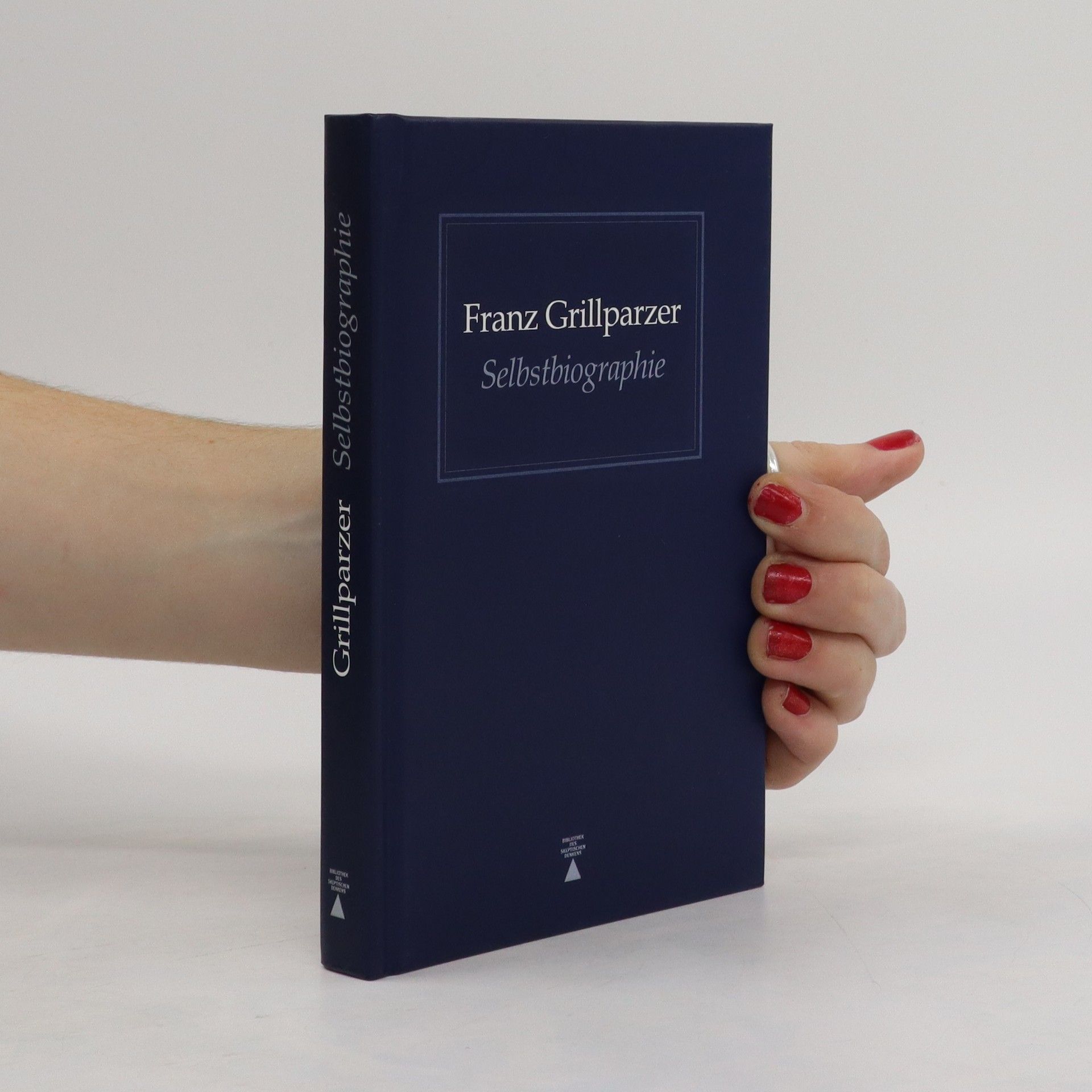
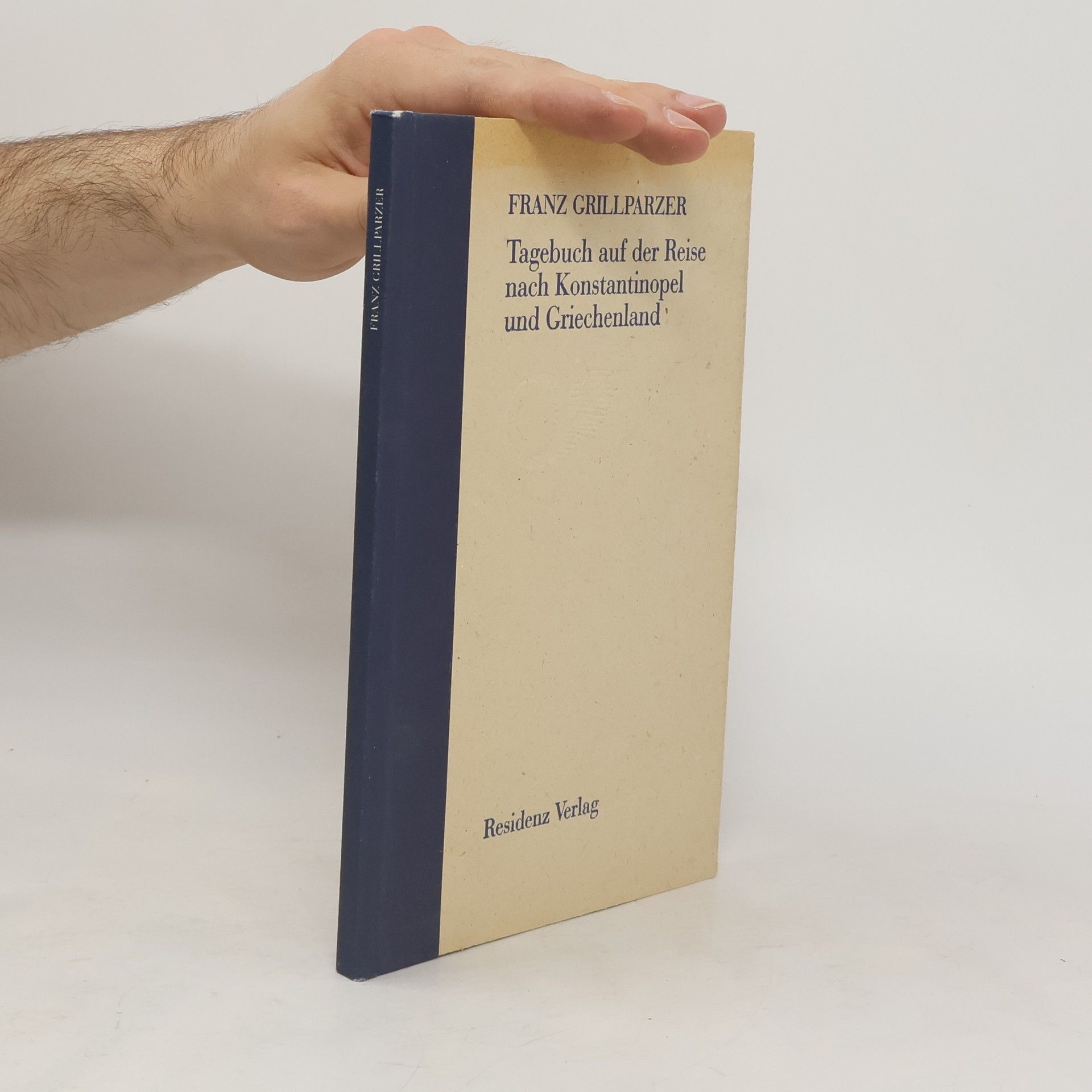



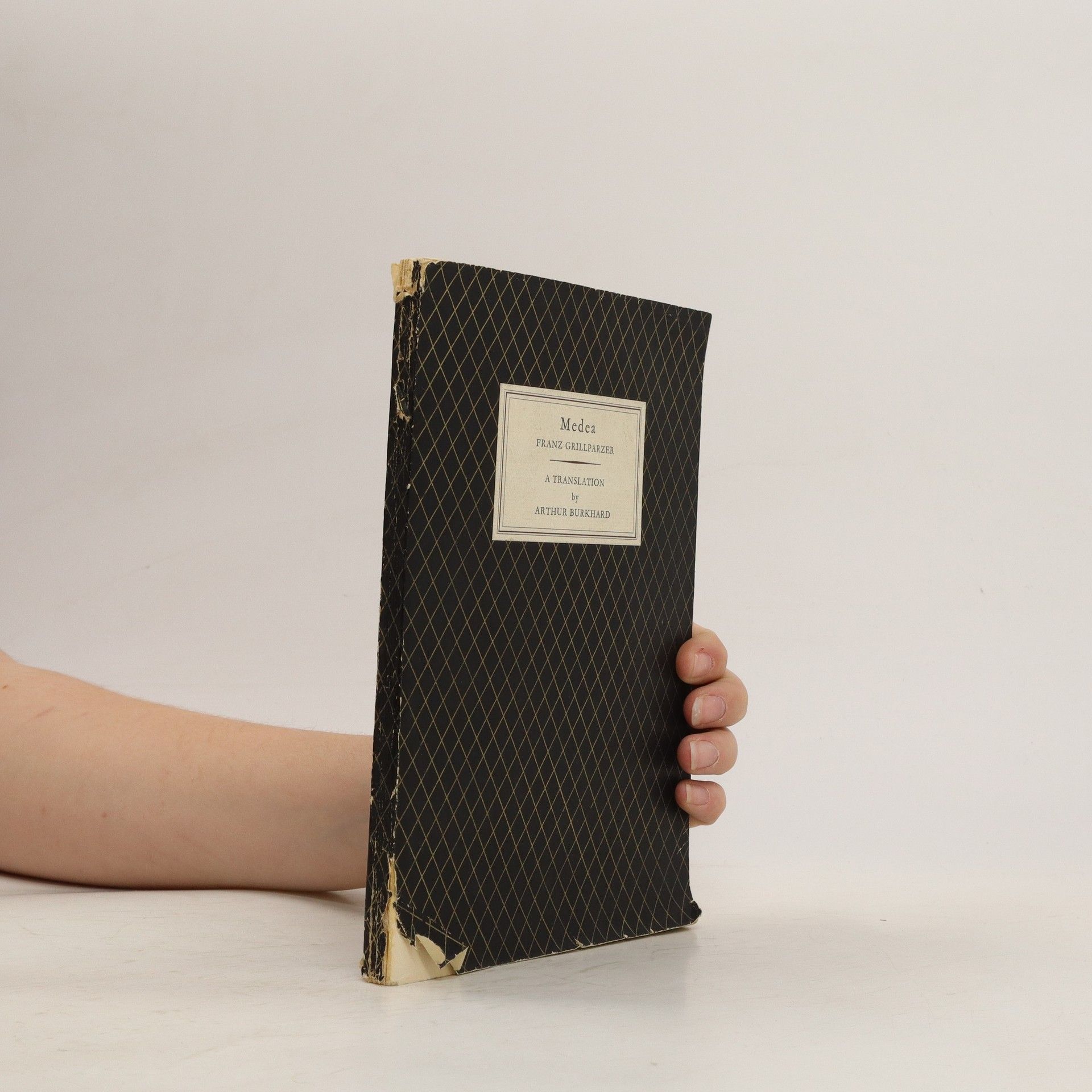
Werke in vier Bänden
- 4 volúmenes
Franz Grillparzer: Ein Bruderzwist in Habsburg. "Trauerspiel in funf Aufzugen" Edition Holzinger. Taschenbuch Berliner Ausgabe, 2013 Vollstandiger, durchgesehener Neusatz mit einer Biographie des Autors bearbeitet und eingerichtet von Michael Holzinger Entstanden zwischen 1825 und 1848. Erstdruck: Stuttgart (Cotta) 1872. Urauffuhrung am 24. 9. 1872 in Wien. Textgrundlage ist die Ausgabe: Franz Grillparzer: Samtliche Werke. Ausgewahlte Briefe, Gesprache, Berichte. Herausgegeben von Peter Frank und Karl Pornbacher, Munchen: Hanser, [1960-1965]. Herausgeber der Reihe: Michael Holzinger Reihengestaltung: Viktor Harvion Umschlaggestaltung unter Verwendung des Bildes: Aquarell von Moritz Michael Daffinger, 1827 Gesetzt aus Minion Pro, 10 pt.
Medea: Trauerspiel in fünf Aufzügen
- 86 páginas
- 4 horas de lectura
Franz Grillparzer (1791-1872) war ein österreichischer Schriftsteller, der vor allem als Dramatiker hervorgetreten ist. Grillparzer studierte an der Universität Wien Rechtswissenschaften. Ab 1821 arbeitete er im Finanzministerium, danach als Archivdirektor bei der kaiserlich-königlichen Hofkammer. Grillparzers poetische Anfänge wurden von der Romantik beeinflusst. 1817 wurde seine Schicksalstragödie Die Ahnfrau, welche alsbald über alle deutschen Bühnen ging, mit außerordentlichem Erfolg aufgeführt. Die Stärke Grillparzers lag in der Entwicklung des Liebesgefühls zu einer dramatischen Handlung, weshalb in gewissem Sinn die Tragödien Sappho (1818) und Des Meeres und der Liebe Wellen (1831) als seine vollendetsten Werke gelten. Von 1821 an, als im Wiener Hofburgtheater die Trilogie Das Goldene Vließ (1822) mit Erfolg aufgeführt wurde, zählte Grillparzer etwa ein Jahrzehnt lang zu den begünstigten Dramatikern. Zu seinen Werken zählen auch: Das Kloster bei Sendomir (1817), Ein Treuer Diener seines Herrn (1830), Der Arme Spielmann (1848), und Die Jüdin von Toledo (1855).
Franz Grillparzer: Selbstbiographie Entstanden 1853, Erstdruck in: Samtliche Werke, Stuttgart 1872. Vollstandige Neuausgabe mit einer Biographie des Autors. Herausgegeben von Karl-Maria Guth. Berlin 2015. Textgrundlage ist die Ausgabe: Franz Grillparzer: Samtliche Werke. Ausgewahlte Briefe, Gesprache, Berichte. Herausgegeben von Peter Frank und Karl Pornbacher, Munchen: Hanser, [1960-1965]. Die Paginierung obiger Ausgabe wird in dieser Neuausgabe als Marginalie zeilengenau mitgefuhrt. Umschlaggestaltung von Thomas Schultz-Overhage unter Verwendung des Bildes: Aquarell von Moritz Michael Daffinger, 1827. Gesetzt aus Minion Pro, 11 pt."
Sláva a pád krále Otakara
- 276 páginas
- 10 horas de lectura
DVĚ STĚ LET STARÁ HRA VYCHÁZÍ V ČEŠTINĚ VŮBEC POPRVÉ! TÉMĚŘ PĚT TISÍC VERŠŮ PŘELOŽIL RADEK MALÝ A OBSÁHLÝM POZNÁMKOVÝM APARÁTEM KNIHU VYBAVILY VÁCLAVA KOFRÁNKOVÁ A VLASTA REITTEROVÁ.
Die Trilogie 'Das goldene Vließ' enthält die drei Dramen 'Der Gastfreund', 'Die Argonauten' und 'Medea'. In diesem Zyklus schreibt Grillparzer die mythologischen Erzählungen der Argonauten-Sage zu einer geschichtsphilosophischen Tragödie des Humanitätsideals um.
Franz Grillparzer: Ein treuer Diener seines Herrn. "Trauerspiel in funf Aufzugen" Edition Holzinger. Taschenbuch Berliner Ausgabe, 2013 Vollstandiger, durchgesehener Neusatz mit einer Biographie des Autors bearbeitet und eingerichtet von Michael Holzinger Entstanden 1826-1827. Erstdruck: Wien (Wallishauser), 1830. Urauffuhrung am 28.02.1828, Burgtheater, Wien. Textgrundlage ist die Ausgabe: Franz Grillparzer: Samtliche Werke. Ausgewahlte Briefe, Gesprache, Berichte. Herausgegeben von Peter Frank und Karl Pornbacher, Munchen: Hanser, [1960-1965]. Herausgeber der Reihe: Michael Holzinger Reihengestaltung: Viktor Harvion Umschlaggestaltung unter Verwendung des Bildes: Aquarell von Moritz Michael Daffinger, 1827 Gesetzt aus Minion Pro, 10 pt.
Des Meeres und der Liebe Wellen
Grillparzer, Franz – Deutsch-Lektüre, Deutsche Klassiker der Literatur
In Grillparzers Trauerspiel um Hero, die sich als Priesterin der Aphrodite geweiht hat, und Leander, den melancholischen Jüngling, befehden sich Liebeszuneigung und starre Satzung, biedermeierliche Kleinbürgermentalität und der Anspruch, das menschlich Richtige frei, ohne Einschränkung und ohne Zwang zu tun, einzig deshalb, wie Hero es ausdrückt, »weil ich es so erkannt«.

